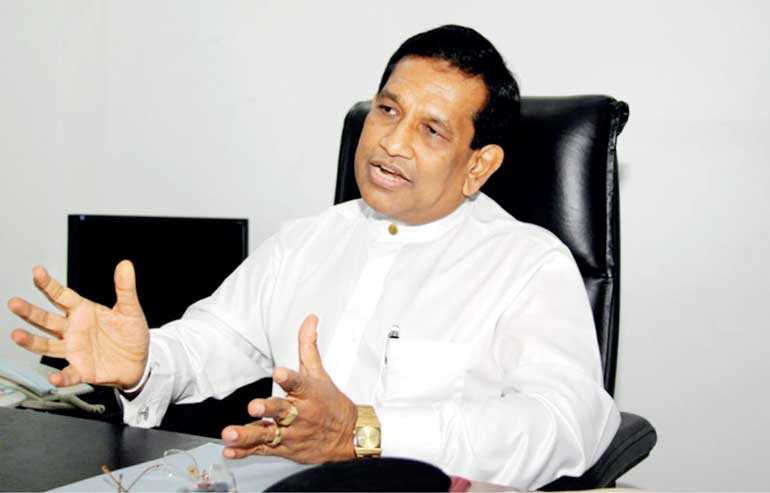Sunday Feb 22, 2026
Sunday Feb 22, 2026
Tuesday, 29 May 2018 00:00 - - {{hitsCtrl.values.hits}}

The Government of Sri Lanka is committed to preserve Universal Health Coverage, which has been a commitment of the successive governments, to provide free health care through a Government-pioneered health care delivery system, Health Minister Dr. Rajitha Senaratne had stated.
Addressing the 71st World Health Assembly now taking place in Geneva, he stated that having understood the challenges in doing so, the Sri Lankan Government is now ready to take the healthcare delivery system through a much needed reform process that will further improve access and coverage for the pressing health needs of non-communicable diseases, elderly, injuries, mental health, cancer, nutrition-related challenges and emerging communicable diseases.
The Minister highlighted the measures taken by the Government to support the Universal Health Care policy, including the fixing of maximum retail prices for 48 most commonly-used drugs, making ocular lenses and cardiac stents available free of charge, and lifting the price ceiling on cancer therapy provided by the national health service on per patient basis.
The new policy focuses on strengthening primary care and adopting a family doctor system, and making available supportive specialised care through a cluster system that will ensure continuity of care.
“We intend to address UHC through a multifaceted approach, where we believe prevention and health promotion will play a critical role,” Minister Senaratne said.
He said the good health outcomes achieved in maternal and child healthcare and communicable diseases such as elimination of malaria, filariasis and maintaining a low prevalence for HIV, will be extended and broad-based through the planned reorganisation of the healthcare delivery system.
The Minister added that in the sphere of non-communicable diseases (NCDs), Sri Lanka has taken major strides in creating the needed policy and the legal environment.
Speaking of the measures taken to improve the health of the nation, the Minister highlighted that Sri Lanka has taken measures for controlling tobacco smoking and introduced a traffic light system and a tax scheme for sugar sweetened beverages soon to be introduced to several other food items including selected snack foods but much more effort needs to go into controlling the abuse of alcohol.
The Minister emphasised that human resources in health would be a critical factor for the progress.
“Our health service is manned by close to 135,000 health care personnel (17,000 doctors, 32,000 nurses and rest paramedical). We need to do an in-depth study of the skills and numbers required in different cadres in keeping with what we envisage for primary care strengthening. Whilst we indeed need the technical support for such analysis, we also need to strengthen HR policy and strategic functions that would be mainstreamed within our organisation,” he said.
Minister Senaratne said within Sri Lanka’s plan for UHC the Government intends to address certain vulnerable communities and people, beginning with the difficult to reach and most vulnerable.
Considering both inbound and outbound migrants as being vulnerable, Sri Lanka has very recently entered into a partnership with the International Organization for Migration which will establish a Health Assessment program for inbound long stay visa applicants, the Minister disclosed.
“The health assessment is intended to link those with TB, HIV, Malaria and Filariasis with our national control programs. This will ensure them with treatment and will also protect public health in our country,” Minister Senaratne explained.
“There is a continuing challenge that we have not resolved, namely, Chronic Kidney Disease of unknown etiology. We appreciate guidance and assistance extended by WHO to improve our understanding, find solutions, a prevention strategy and improve our clinical management practices. We are also thankful for the assistance extended by the Chinese Government in setting up a research centre and much-needed treatment facilities and we are mindful that we have a long way to go to see a reversal of the situation for the better,” the Minister concluded.